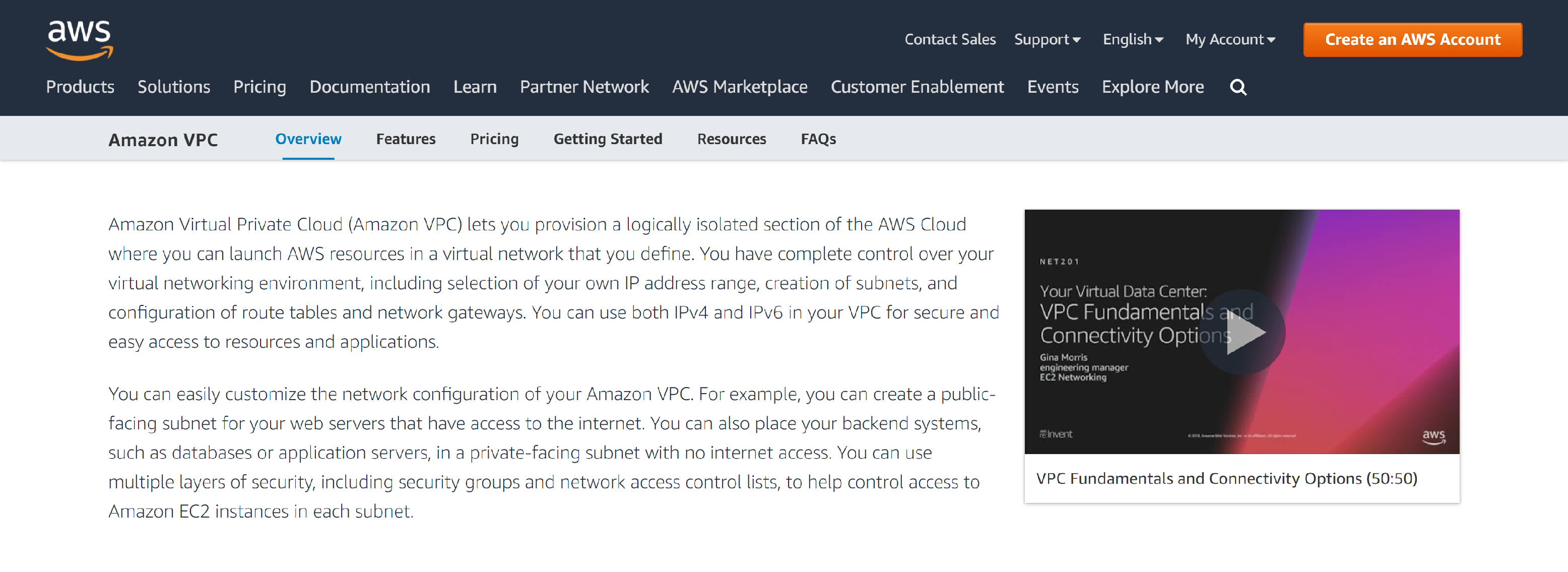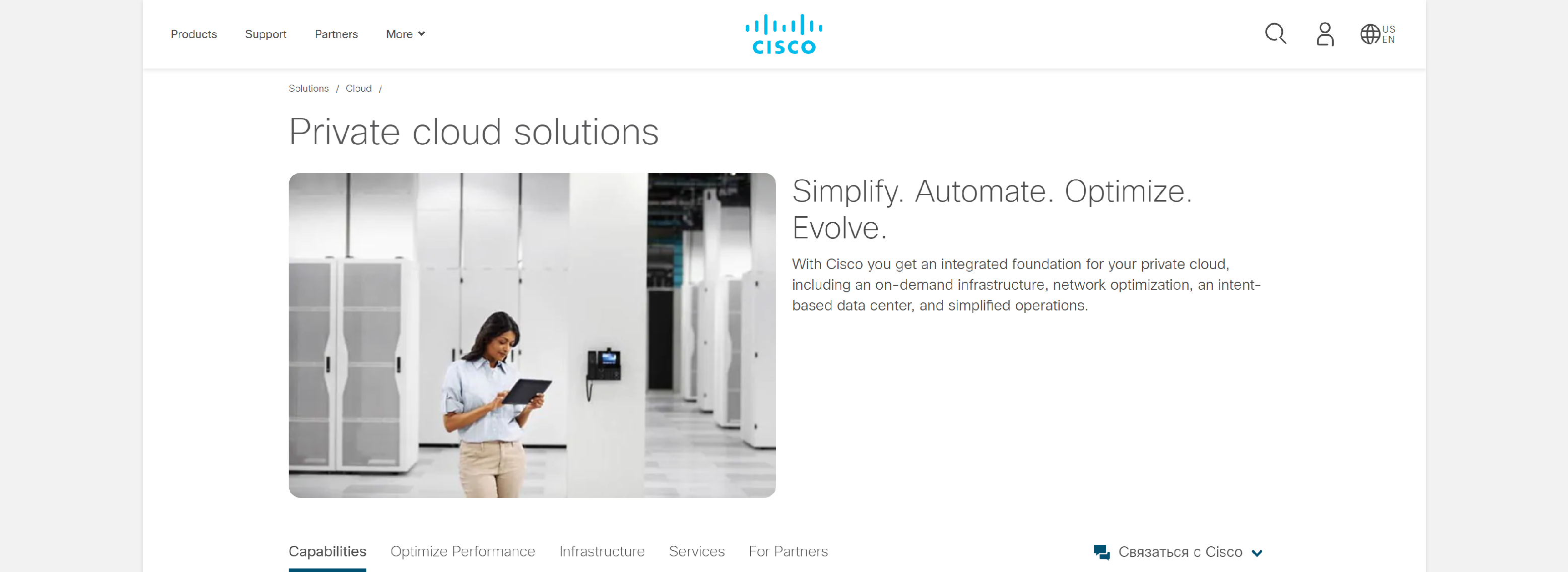A Private cloud is the particular model of the cloud computing platform that is implemented in a secure environment within the corporate firewall, in which just verified clients can operate. It is dedicated to single organization for greater control, scalability and privacy. A typical private cloud automates the workflows and takes out the human tasks including setting up the firewall rules or configuring the load balancers etc. It also relies on the security measures provided by the cloud and the data center.
How to build a private cloud
If you want to build a private cloud, then there are 5 stages you must consider to improve your chances of success.
Standardization:
First, you need to decide that what kind of hardware and software you’re going to use in the private cloud deployment. Simplify your design to avoid complexity and high cost. When the environment is fully standardized, it needs fewer custom integration points.
Consolidation:
Once you have figured out the systems required to build a provide cloud, move towards the consolidation process. Limit the equipment that needs to be managed. Replace all the out dated and low performing equipment with the latest and efficient systems to increase the standard of your cloud, like if you require a design with multiple storage protocols, go for those systems that have the required protocols in only one device.
Virtualization:
This process mostly depends on the design and the intended delivery model. It is carried out to handle the allocation of underlying resources and to provide flexibility to network resources.
Automation:
Now it’s time to modify your IT processes. Replace the common repetitive tasks with the automated ones. Automation allows the IT staff to do more important tasks like service deployment.
Orchestration:
It is the last step of the whole process. It provides the self-service functionality to the system. The two key components you may need from the orchestration product can be a service catalog and the self-service portal.
Hardware and Software are just the parts of the entire process of private cloud building. You need to follow the above mentioned approach to continue down the path. Also do keep in mind that the people and process are the big part of deployment as well.
Private cloud advantages
Higher Security:
The private clouds use security ensuring techniques to guarantee that the operations are kept out of the reach of probing eyes. These techniques may include distinct pools of resources with access restricted to connections made from behind the organization’s firewall, dedicated leased lines and so on.
Control:
Due to the fact that a private cloud can only be accessed by its organization, the organization will be fully capable to configure and manage it, according to its requirements to get a tailored network solution.
Cost & Energy Efficiency:
The allocation of the resources is improved, ensuring the availability of resources to each department along with the flexible responses to their demands. Therefore, the private clouds are not that cost effective and they do make more efficient use of the computing resources by minimizing the investment into unused capacity.
Cloud Bursting:
In this service, you can easily switch certain non-sensitive functions to a public cloud in order to make free space in the private cloud for sensitive functions. Hybrid clouds can also be formed by integrating the public cloud services with private clouds, where the public cloud holds the non-sensitive to maximize the efficiencies.
Scalable Design:
When there are more required storage services, then solutions have to scale up without impacting the service. Thus no additional management is over headed when the capacity is increased or any change in performance is made.
AWS.AMAZON

Amazon Virtual Private Cloud (Amazon VPC) lets you provision a logically isolated section of the AWS Cloud where you can launch AWS resources in a virtual network that you define.
- Host a simple, public-facing website
- Host multi-tier web applications
- Disaster recovery
- Extend your corporate network into the cloud
- Securely connect cloud applications to your datacenter
- Out-of-band and inline traffic inspection
ABIQUO

Abiquo’s cloud management platform powers leading service provider and enterprise hybrid clouds.
- One console for all your clouds
- Get more value from existing cloud investments
- Deliver your hybrid cloud strategy
- Expand and monetise your cloud managed services
- Automate all your cloud resources through Abiquo’s API
- The governance you need for your cloud managed services
CISCO

With Cisco, get an integrated foundation for your private cloud, including an on-demand infrastructure, network optimization, an intent-based data center, and simplified operations.
- Understand your requirements, inventory your existing processes and applictions, and prepare the team for change.
- Use infrastructure architected for automation and optimized for application modernization and dynamic workloads.
- Ensure end-to-end security, consistency, and performance as you evolve your on-premises for the multicloud world.
CLOUDSTACK

CloudStack is open source cloud computing software for creating, managing, and deploying infrastructure cloud services.
- Rich Management User Interface
- Brand-able Self Service User Interface
- Secure AJAX Console Access
- Powerful API
- Secure Single Sign On
- Multi-role Support
- On Demand Virtual Data center Hosting
- Dynamic Workload Management
- Broad network Virtualization Capabilities
- MPLS Support in the Cloud
- Secure Cloud Deployments
- Hypervisor Agnostic
- Easy Template Creation Process
- Rich Template and ISO Management
- And more.
EUCALYPTUS

Eucalyptus is open source software for building AWS-compatible private and hybrid clouds. As an Infrastructure as a Service (IaaS) product, Eucalyptus allows your users to provision your compute and storage resources on-demand.
- Run instances with EC2 and Auto Scaling / ELB
- Use S3 storage to share data and EBS for persistent instance state
- Use IAM to manage users and control access, and Cloud Formation to manage resources
- Use CloudWatch to monitor your compute resources
Private Cloud Costs:
The complete and thorough comparison of private cloud and public cloud suggests that the private cloud is almost 40% less expensive than that of the public, for those enterprises, whose IT resources are already in significant place.
This cost efficiency depends upon the higher workload density, dynamic management of resources and the economies of scale that guarantee the service levels. When all of the services are allocated to specific workloads, then optimal costs can be achieved. IT requires high rates of efficiency while allocating the resources along with the effective strategies to give response when the workloads consume all of the assigned resources.
Is Private Cloud Right for You?
A private cloud can be used to acquire higher levels of privacy and reliability, so it is most suited for the sensitive and critical workloads. If you have sensitive data, then you must use this, but if not, then use the public cloud system as it is really difficult to access data in private cloud due to the increased security measures.
If you are planning to outsource the cloud requirements, make sure that you select a trustable service provider and then work with their architects to catch up with the perfect solution for you.